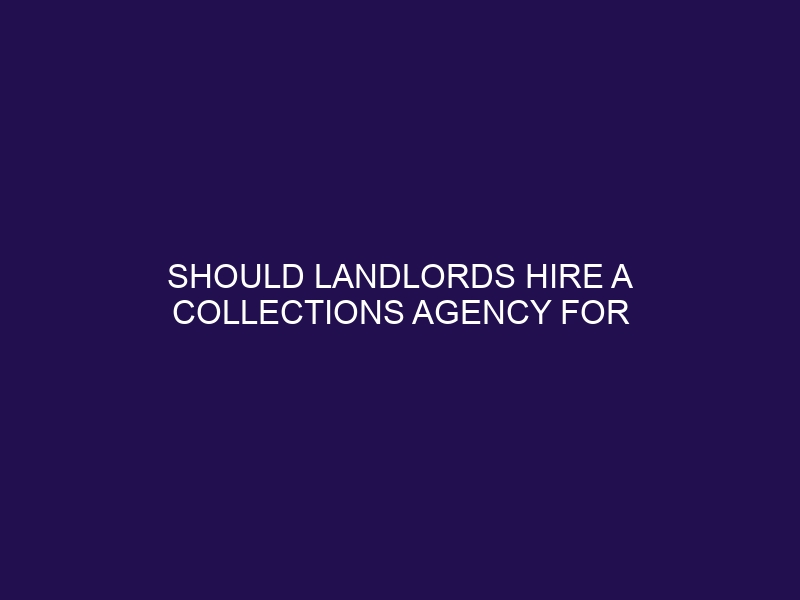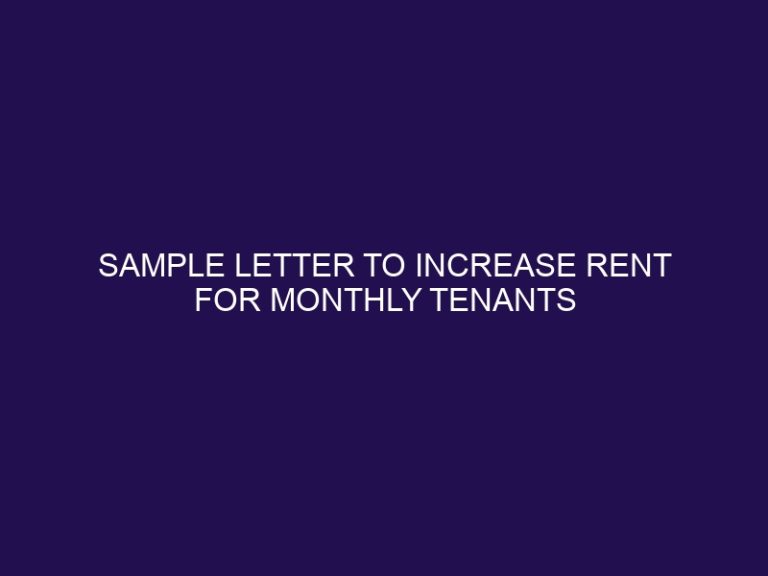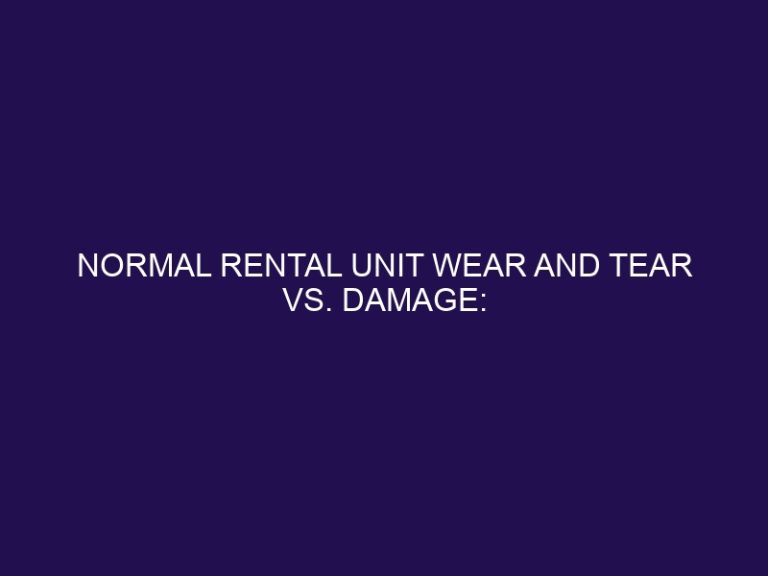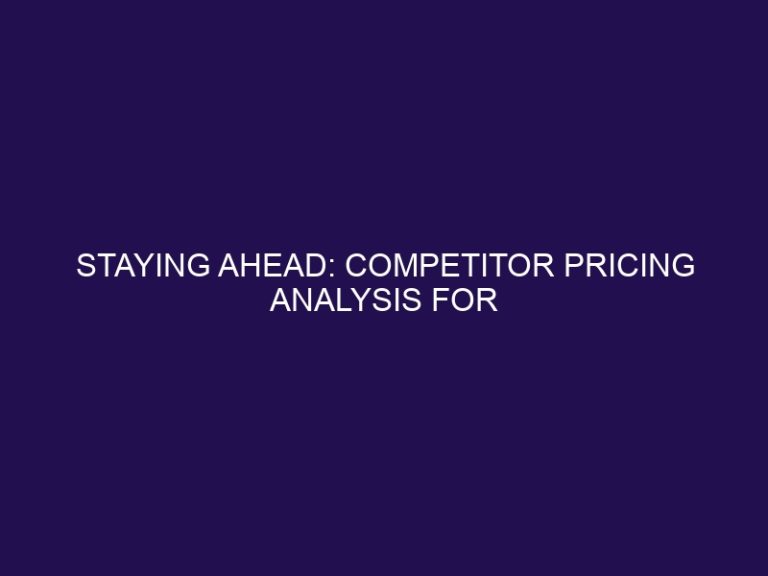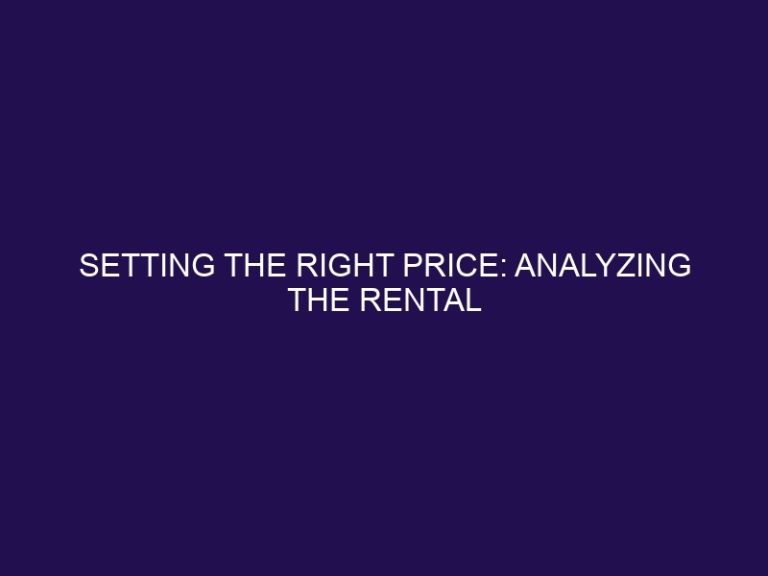Should Landlords Hire a Collections Agency for Unpaid Rent?
Introduction to Unpaid Rent Collections
One of the biggest challenges landlords face is dealing with tenants who fail to pay their rent on time. While this can be a frustrating and stressful situation, it is important for landlords to handle it in a professional and efficient manner. For some landlords, this means hiring a collections agency to help recover unpaid rent from their tenants. In this article, we will explore the concept of unpaid rent collections and discuss whether hiring a collections agency is the best option for landlords.
What is a Collections Agency?
A collections agency, also known as a debt collection agency, is a company that specializes in recovering unpaid debts on behalf of individuals or businesses. They work with creditors, such as landlords, to collect money that is owed to them by their debtors, in this case, tenants.
Why Do Landlords Hire Collections Agencies?
There are several reasons why landlords may choose to hire a collections agency to help with unpaid rent. Some of these reasons include:
- To Avoid Conflict with Tenants: Dealing with unpaid rent can often lead to conflicts and tension between landlords and tenants. By hiring a collections agency, landlords can avoid the uncomfortable situation of having to constantly remind their tenants to pay rent.
- To Save Time and Resources: Collecting unpaid rent can be a time-consuming and resource-intensive process for landlords. By hiring a collections agency, landlords can focus on other aspects of managing their properties while the agency handles the collection process.
- To Improve Cash Flow: Unpaid rent can significantly impact a landlord’s cash flow and make it difficult for them to cover their own expenses. By hiring a collections agency, landlords can improve their cash flow by recovering the unpaid rent from their tenants.
How Do Collections Agencies Work?
Collections agencies follow a specific process when it comes to recovering unpaid rent. This process typically involves:
- Contacting the Tenant: The collections agency will first attempt to contact the tenant and inform them of the outstanding debt. They may send letters, make phone calls, or even visit the tenant in person to discuss the unpaid rent.
- Negotiating Payment Plans: If the tenant is willing to pay but unable to make a lump sum payment, the collections agency may work with them to create a payment plan that is manageable for both parties.
- Reporting to Credit Bureaus: In some cases, the collections agency may report the unpaid rent to credit bureaus, which can negatively impact the tenant’s credit score. This can serve as a strong incentive for the tenant to pay their debt.
What Are the Costs of Hiring a Collections Agency?
Collections agencies typically charge either contingency fees or flat fees for their services.
- Contingency Fees: This type of fee is a percentage of the amount collected by the agency. For example, if the agency charges a 20% contingency fee and they successfully collect $1,000 in unpaid rent, they will keep $200 as their fee.
- Flat Fees: Some agencies may charge a flat fee for their services, regardless of the amount of unpaid rent collected. This fee can range from a few hundred dollars to several thousand dollars.
Alternatives to Hiring a Collections Agency
While hiring a collections agency can be an effective way to recover unpaid rent, there are some alternatives that landlords may consider before making this decision. These include:
- Self-Collection: Landlords can attempt to collect unpaid rent on their own by sending letters, making phone calls, or even taking legal action if necessary.
- Legal Action: If the tenant continues to refuse to pay, landlords can take legal action against them through small claims court. This option should be carefully considered, as it can be time-consuming and costly.
Conclusion: Is Hiring a Collections Agency Worth It for Landlords?
Ultimately, the decision to hire a collections agency for unpaid rent will depend on a landlord’s individual situation and preferences. While it can be an effective way to recover unpaid rent, it is important for landlords to carefully consider the costs and potential consequences before making a decision.
Key Takeaways:
What is a Collections Agency?
A collections agency is a company hired by landlords to recover unpaid rent or other debts from tenants. They use various methods to collect overdue payments, including phone calls, letters, and legal actions if necessary. This type of agency is responsible for handling the collection process and ensuring that landlords receive the payments they are owed.
Why Do Landlords Hire Collections Agencies?
As a landlord, dealing with unpaid rent can be a frustrating and time-consuming process. That’s why many landlords turn to collections agencies for help. In this section, we will discuss the top reasons why landlords choose to hire collections agencies to handle unpaid rent. From avoiding conflicts with tenants to improving cash flow, we’ll explore the various benefits of outsourcing this task to a professional agency.
To Avoid Conflict with Tenants
- Communicate: Address payment matters professionally to maintain a positive landlord-tenant relationship.
- Set Clear Expectations: Clearly outline rent payment terms in the lease agreement to prevent misunderstandings.
- Offer Options: Provide flexible payment plans to accommodate tenants facing financial challenges.
A landlord successfully avoided conflict with tenants by implementing transparent communication and offering payment flexibility during a difficult financial period.
To Save Time and Resources
- Automate rent reminders and payments to save time and resources.
- Streamline the rent collection process by utilizing online platforms.
- Consider outsourcing to professional property management companies for efficient rent collection.
Pro-tip: Embrace technology and seek professional assistance to save significant time and resources as a landlord.
To Improve Cash Flow
- Assess Rental Terms: Evaluate lease agreements and consider adjusting due dates or grace periods to improve cash flow.
- Streamline Processes: Implement digital payment systems or automated reminders to ensure timely collections and improve cash flow.
- Offer Incentives: Provide discounts for early payments to motivate tenants and enhance cash flow.
How Do Collections Agencies Work?
Facing unpaid rent can be a challenging situation for landlords, and hiring a collections agency may seem like a viable solution. But before making a decision, it’s important to understand how collections agencies operate. In this section, we will discuss the ins and outs of collections agencies, including their process for contacting tenants, negotiating payment plans, and reporting to credit bureaus. By gaining a better understanding of how collections agencies work, landlords can make an informed decision on whether to enlist their services for unpaid rent.
Contacting the Tenant
When reaching out to the tenant regarding unpaid rent, it is crucial to maintain a professional demeanor and adhere to legal guidelines. Communication should be direct, assertive, and courteous, with the goal of finding a mutually agreeable solution.
It may be helpful to provide flexible payment options to prevent the situation from worsening.
Negotiating Payment Plans
- Evaluate Tenant’s Financial Situation
- Discuss Feasible Repayment Options for Negotiating Payment Plans
- Agree on Realistic Payment Schedule
Reporting to Credit Bureaus
Collections agencies are required to report unpaid rent to credit bureaus, which can have a negative impact on tenants’ credit scores. This can create difficulties for tenants in securing future housing or obtaining loans. In fact, overdue rent payments can greatly lower credit scores, limiting financial opportunities.
What Are the Costs of Hiring a Collections Agency?
As a landlord, one of the biggest challenges can be dealing with unpaid rent from tenants. In such cases, hiring a collections agency may seem like a viable solution. However, before making a decision, it is important to consider the costs involved. In this section, we will discuss the two main types of fees charged by collections agencies: contingency fees and flat fees. By understanding these costs, landlords can make an informed decision on whether or not to hire a collections agency for unpaid rent.
Contingency Fees
Contingency fees are charges based on a percentage of the collected amount. For example, if a collections agency collects $1,000 with a contingency fee of 20%, the landlord would receive $800. These fees serve as an incentive for agencies to maximize collections.
A landlord hired a collections agency with a contingency fee of 25%. After successfully collecting $5,000 in unpaid rent, the landlord received $3,750.
Flat Fees
Flat fees are fixed amounts charged by collections agencies, regardless of the amount collected. These fees provide clarity on costs, usually falling between $100 and $1,000. Landlords should consider this option for predictable expense management when collecting unpaid rent.
Alternatives to Hiring a Collections Agency
As a landlord, dealing with unpaid rent can be a frustrating and time-consuming task. While hiring a collections agency may seem like the most efficient solution, there are other alternatives to consider. In this section, we will discuss two options for landlords: self-collection and legal action. By exploring these alternatives, you can make an informed decision on the best course of action for your specific situation.
Self-Collection
- Assess the laws: Understand the legal rights and limitations for self-collection.
- Communication: Send clear, formal notices to the tenant regarding overdue rent and the process of self-collection.
- Negotiation: Discuss payment options and deadlines with the tenant and come to a mutually agreed upon self-collection plan.
Legal Action
- Review Lease Agreement: Ensure legal grounds for taking legal action for unpaid rent.
- Issuing Notice: Serve an official notice to the tenant for payment in order to pursue legal action.
- File Lawsuit: If the notice is ignored, take legal action and file a lawsuit in the appropriate court.
- Court Judgement: Attend court hearings and obtain a legal judgment for the rent owed through legal action.
Frequently Asked Questions
Should landlords hire a collections agency for unpaid rent?
Yes, landlords may consider hiring a collections agency to assist with collecting delinquent rent payments from tenants.
What are some other options for landlords when dealing with late or missed rent payments?
Landlords can also personally confront the tenant or take legal action, such as filing a lawsuit or obtaining a judgment against the tenant.
What is the process for evicting a tenant who is still occupying the unit?
Landlords must get permission from a landlord and tenant tribunal and have sufficient grounds to evict a tenant. This may involve a hearing where evidence must be presented and tenant defenses must be overcome.
Can landlords send tenants to collections if they haven’t moved on after the 30-day notice period?
Yes, landlords may send delinquent tenants to collections after the notice period has passed. Landlords should have a written policy in place and follow the Fair Debt Collection Practices Act when dealing with delinquent tenants.
Are there any fees associated with using a rent collection agency?
Yes, rent collection agencies may charge a flat fee or a percentage of the amount owed. Landlords should carefully consider the cost and determine if it is worth using a collections agency.
What are some best practices for landlords when it comes to rent collection?
Some best practices for landlords include having a clear rent collection policy, using a property management software with a rent collection feature, and hiring a professional collections agency if necessary. It is important for landlords to carefully track and document all rent payments and late notices.

